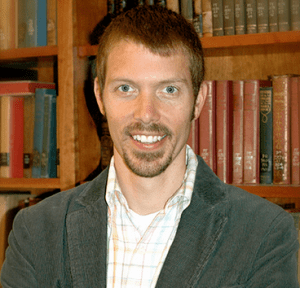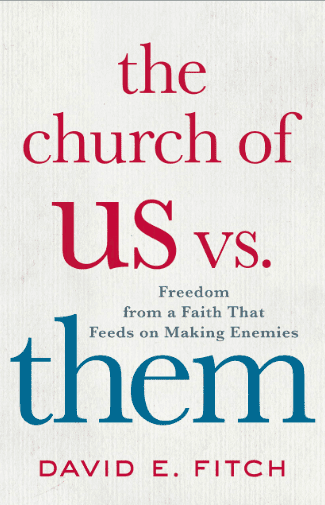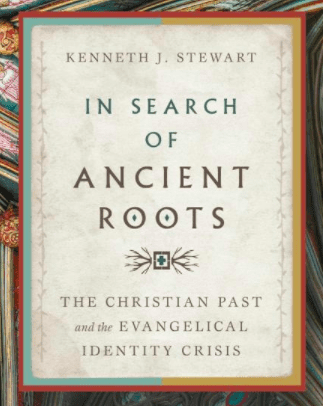 When it comes to institutions aligned with evangelical progressivism it is not as easy to say “there it is” but when it comes to people, one can point directly at Jim Wallis. While I’m not convinced many Christians who seek to influence the state have an explicit teleology, an activist commitment to influence forms the heart of both the evangelical right and evangelical left. (By teleology I mean to ask this question: What will happen if they “win” the influence? Will it turn into a kind of Constantinianism? Or is there an unexpressed assumption that they won’t win? Or is the influence so blandly secular and social that Constantinianism will never raise its head?)
When it comes to institutions aligned with evangelical progressivism it is not as easy to say “there it is” but when it comes to people, one can point directly at Jim Wallis. While I’m not convinced many Christians who seek to influence the state have an explicit teleology, an activist commitment to influence forms the heart of both the evangelical right and evangelical left. (By teleology I mean to ask this question: What will happen if they “win” the influence? Will it turn into a kind of Constantinianism? Or is there an unexpressed assumption that they won’t win? Or is the influence so blandly secular and social that Constantinianism will never raise its head?)
Regardless, at the heart of the evangelical progressive movement, as Brantley W. Gasaway [Image] makes abundantly clear in his book Progressive Evangelicals and the Pursuit of Social Justice, are some names and some “institutions”: Ron Sider, Jim Wallis, John Alexander along with The Other Side, Evangelicals for Social Action and Sojourners (formerly The Post-American). And what made this heart pump was what Gasaway calls “A Public Theology of Community.” In today’s post I want to draw attention to this excellent chapter in his study and to its major themes; it seems to this non expert that this construction is a distinct contribution to the entire discussion of evangelical public activism. Here we get a full orbed vision of a public theology … formed, as it were, on the back of Israel’s story. Gasaway is a professor at Bucknell University, and his book complements the exceptional study of David Swartz called The Moral Minority (blogged about on this blog here and here).
The former fascination with the fundamentalist side of evangelicalism is giving way these days to careful analyses of the progressive side.
Here is Gasaway’s opening summary of a public theology of community, which I have reformatted into numbers to make it easier to read:
That is, based upon perceived rights and responsibilities that flow out of humans’ communal nature, they developed a set of theological convictions about public affairs and politics that shaped their efforts to promote a just society.
1. God’s creation of each individual gives all people essential sanctity and equality, leaders believed, and thus social conditions and public policies must ensure individual rights and liberties.
2. But God also creates people as interdependent communal beings, linked as neighbors with reciprocal responsibilities for each other’s welfare and the common good.
3. Evangelical progressives argued that such responsibilities extend beyond the personal to the public sphere, as political policies codify these obligations and coordinate collective social programs.
4. Because social justice provides the vital framework for balancing individual rights and the common good, leaders regarded it as the highest ideal of public life.
5. They insisted that the biblical vision for social justice requires substantively equal opportunities that depend upon the equitable distribution of socioeconomic resources.
6. Because the state acts as the organized political community, progressive evangelical leaders concluded, the government should foster social justice by promoting policies of distributive justice (54).
As such, progressive evangelicals opposed radical individualism in favor of a communal life and efforts for the common good as they also opposed the suppression of Christian voices in the public sector. They offered instead a Christian progressive alternative. Further, they were activists not political theorists.
1. It is a public theology: that is, it is biblical and theological and then extended into the public sector through political means. For both Wallis and Sider there is an unabashed commitment to Scripture norms.
2. The image of God is important and links all humans beings under God’s design. This forms a theology of rights of life and freedom, etc. Image of God, too, forms a basis of equality. This, too, forms the core of why humans are to live in community and to strive for the common good. Such commitments constrain individualism.
3. This leads Gasaway to a sketch of the social justice aims of progressive evangelicals. It is not partisan politics but justice that forms the aim. This involves materials and resources for all on a just basis: food, productive assets, private property, health care, education, and employment (Sider’s list, p. 62). That is, they fight for formal and substantive equality. Hence, distributive justice emerges early in this orientation. Very importantly, the progressive evangelicals then develop a strong sense of the state as the agent of justice. They opposed both totalitarianism and libertarianism.
4. They also opposed dimensions of liberalism, in particular, the elevation of rights and freedoms at the expense of the common good and the suppression of the religious voice.
My question is always the same for this kind of social activism — whether it is Kuyperian or Niebuhrian — is Where is the church as a politic? Behind that question is this hermeneutical one: How can one move from what is said for Israel or for the church to “for the USA”?















